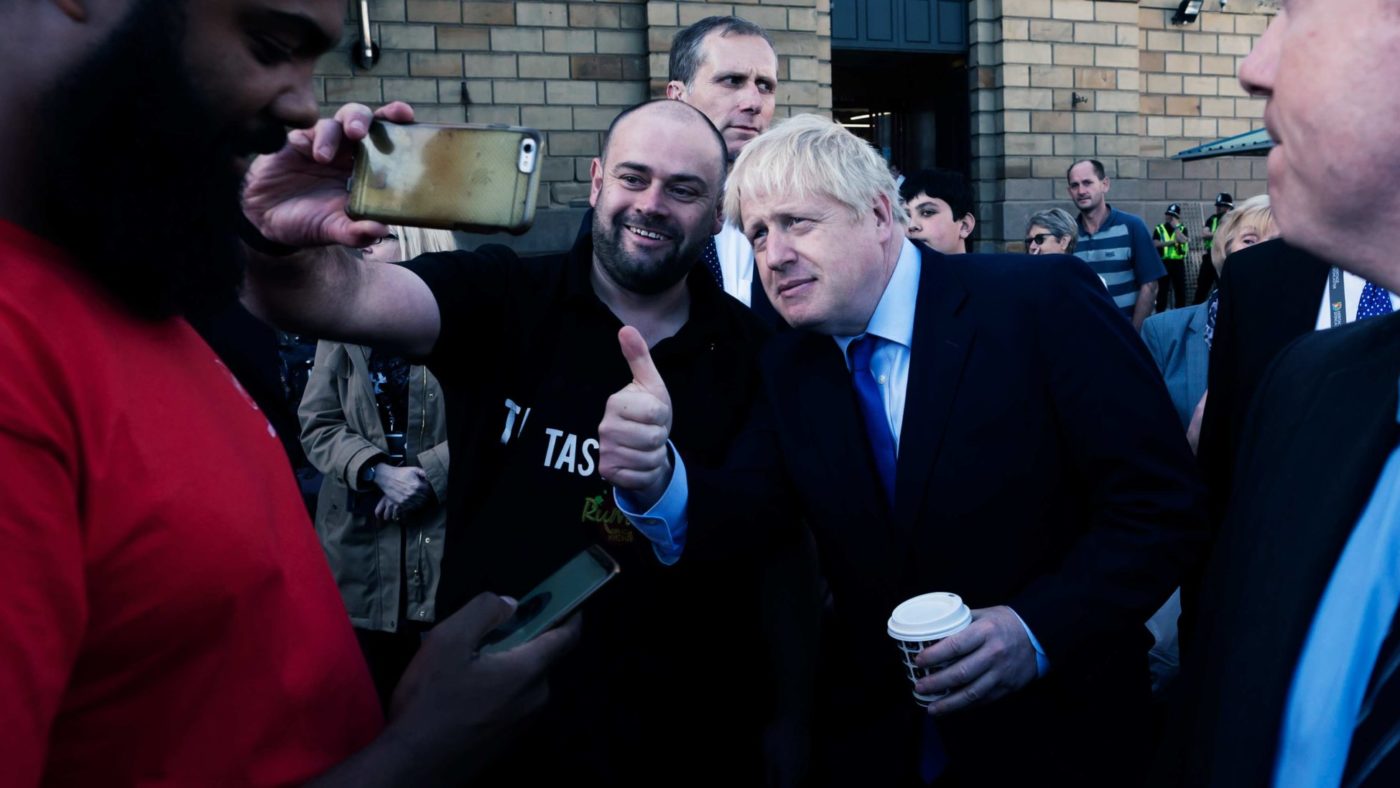In the last fortnight, the Brexit landscape has shifted from deadlock with the chances of a no-deal Brexit rising, to a deal agreed with the EU finally passing a House of Commons vote (its second reading).
But what does the public make of it, and has the deal moved the dial in a way that conference season didn’t?
Opinion on the deal itself is difficult to assess because the public have relatively little information to go on so far. This isn’t surprising – few will be familiar with its substance. But since few will ever read its hundreds of pages anyway, what exactly are they waiting for? What matters here are elite cues.
The initial reaction to Theresa May’s deal was strongly negative, whereas Boris Johnson’s deal has been well received across the Eurosceptic spectrum, as well as in sympathetic parts of the press. Indeed, a direct comparison of the two finds net preference for Johnson’s deal over the May deal.
As such, there are large numbers of voters who are unsure where they stand, with up to 45% in some polls sitting on the fence. Among those with a view, polls vary. ComRes, Panelbase and Survation all found more support than opposition, while YouGov found initial support for passing the deal, but scepticism of its merits.
Framing usually matters here, and in this case we have multiple polls with different question wordings. But the overall picture, as with many things (Brexit-related and otherwise) is that those with a view are divided relatively evenly, and largely along Remain versus Leave lines.
The evidence of an effect on voting intention polling has so far been limited, but the pre-existing trend of the Conservatives making incremental gains and in doing so edging further ahead of Labour has continued, with most pollsters now giving them double-digit leads.
The one exception was Deltapoll, which showed a 5% swing to the Tories compared with its last survey. This was seized upon by Johnson supporters, but looks more like a reversion to trend following an unusually small Tory lead in September, rather than a consequence of recent events.
The deal also seems to have had little effect on some other numbers – YouGov found that fully three quarters (75%) of Brits thought that the government was handling Brexit badly, with only 18% saying it was handling Brexit well, with even Leave voters breaking for “badly” by a margin of two-to-one.
Nor is there clear evidence of an effect on voting intention for a second EU referendum, at least in terms of the generic (i.e. 2016) question. But perhaps more interestingly, Brits gave a stronger “Leave” response when asked to choose between leaving with Boris Johnson’s deal and remaining in the EU. Two hypothetical referendum polls have shown a 42-42 tie, while the generic question (and the highly-correlated right/wrong question) have recently shown small but consistent leads for the Remain.
This is significant because one school of thought on the pro-EU side holds that once people know the details of Brexit and what it entails, they may be less amenable to it than to “Leave” in the abstract. So far that doesn’t appear to be borne out by the polling, though that is of course subject to change.
What effect might a delay have? This should be cause for concern for Boris Johnson and the Conservatives, because the party’s plunge in the polls in the spring coincided with the extension of the Article 50 process until October. And Johnson has made even more of a point of leaving on the 31st of October then Theresa May did of the 29th of March.
There are a few danger moments. Requesting an extension from the EU doesn’t seem to have had much impact, and even produced a few helpful headlines. It’s a bit soon to assess the impact of the second reading and programme motion votes, but they may have some impact, as might the EU confirming the extension, as well as the 31st coming and going without Brexit having taken place.
On the other hand, framing the standoff as the People versus Parliament may help Johnson deflect the blame – at least in the eyes of his target audience of Conservatives and Eurosceptics – towards his opponents. Polling suggests that a delay may upset some of them but the tactic could still work anyway, though a lot will depend on how it’s handled, communicated and covered.
It’s worth remembering too that on a topic as complex and as emotive as Brexit, a great many MPs will be voting with their convictions, and so public opinion only matters indirectly.
But nonetheless, it does matter. One important way in which matters is its effect on the likelihood and timing of a general election being called, either by the government, or by the opposition through a vote of no confidence.
With this, as with so many things, we await Westminster finally making a decision.
Click here to subscribe to our daily briefing – the best pieces from CapX and across the web.
CapX depends on the generosity of its readers. If you value what we do, please consider making a donation.


